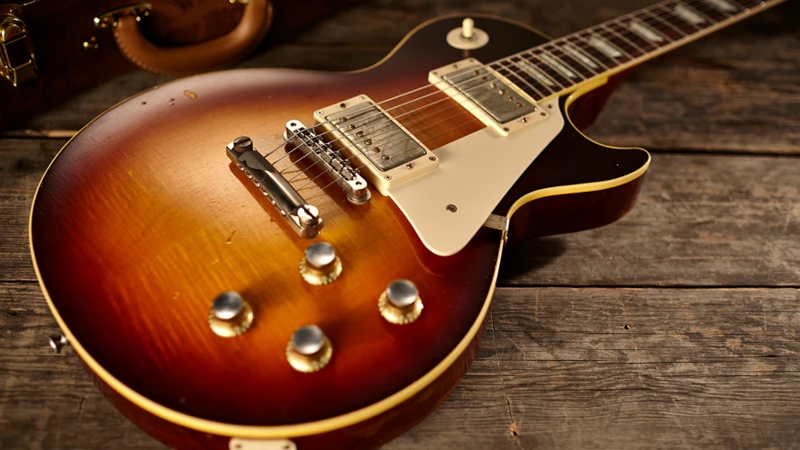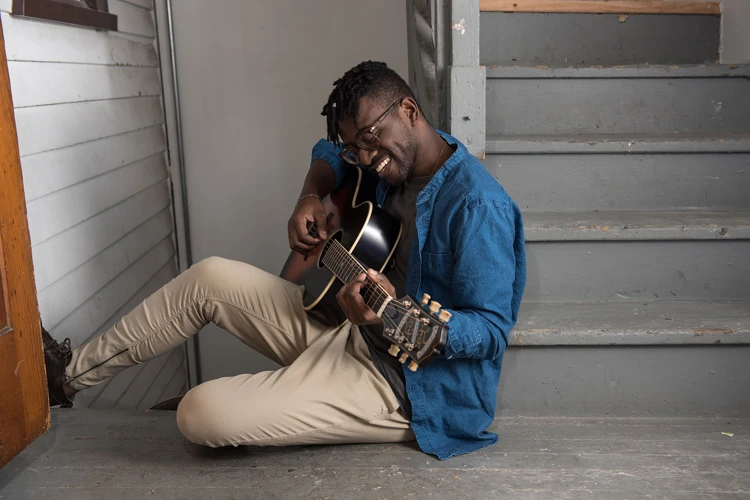Electric guitars have long been a staple in the world of country music, adding a unique flair and energy to the genre. However, the use of electric guitars in country music has not been without its controversies and criticisms. Traditionalists argue that the sound of electric guitars strays too far from the roots of country music, while others embrace the modernity and innovation that electric guitars bring to the genre. In this article, we will delve into the controversies and criticisms surrounding electric guitars in country music, examining both sides of the debate and exploring the impact of this ongoing discussion.
The Evolution of Electric Guitars in Country Music
Electric guitars first made their way into country music in the 1930s and 1940s, revolutionizing the sound and style of the genre. Artists like Merle Travis and Speedy West were among the pioneers of incorporating electric guitars into country music, bringing a new level of energy and versatility to their music. The twangy tones and dynamic range of electric guitars quickly caught on, leading to their widespread adoption in country music.
As the decades passed, electric guitars became a defining feature of the country music sound, with iconic players like Chet Atkins and Buck Owens showcasing the instrument’s capabilities. The electric guitar’s ability to cut through the mix and provide a rich palette of tones made it a favorite among country musicians looking to push the boundaries of the genre.
Controversies Surrounding Electric Guitars in Country Music
Despite the widespread acceptance of electric guitars in country music, controversies have arisen regarding their place in the genre. Traditionalists argue that the sound of electric guitars deviates too far from the roots of country music, which was originally rooted in acoustic instruments and simpler arrangements. They believe that the twang and distortion of electric guitars detract from the authenticity and purity of traditional country music.
Furthermore, some critics argue that the dominance of electric guitars in country music has led to a homogenization of the genre, with many contemporary country songs sounding indistinguishable from mainstream rock or pop music. This blending of genres has sparked debates about the authenticity and identity of modern country music, with some purists lamenting the loss of the genre’s distinctive sound and style.
The Rise of Pop-Country and the Influence of Electric Guitars
One of the most significant developments in country music in recent years has been the rise of pop-country, a subgenre that blends elements of country music with pop, rock, and other genres. Pop-country artists like Taylor Swift, Florida Georgia Line, and Sam Hunt have achieved mainstream success by incorporating electronic beats, synthesizers, and heavily processed vocals into their music, often accompanied by prominent electric guitar riffs.
While pop-country has attracted a new generation of fans and expanded the genre’s reach, it has also faced criticism for straying too far from traditional country music roots. The heavy use of electric guitars and other modern production techniques in pop-country have drawn ire from traditionalists who believe that the genre has lost its authenticity and soul in pursuit of commercial success.
The Role of Electric Guitars in Modern Country Music
Despite the controversies and criticisms surrounding electric guitars in country music, many artists continue to embrace the instrument as a vital component of their sound. Modern country musicians like Keith Urban, Brad Paisley, and Miranda Lambert have pushed the boundaries of the genre by incorporating intricate electric guitar solos, innovative effects, and dynamic arrangements into their music.
These artists have demonstrated the versatility and creativity that electric guitars bring to country music, showcasing the instrument’s ability to evoke emotion, tell stories, and captivate audiences. While some purists may decry the evolution of the genre, others see the use of electric guitars as a natural progression that reflects the ever-changing landscape of country music.
The Future of Electric Guitars in Country Music
As country music continues to evolve and adapt to changing trends, the role of electric guitars in the genre remains a topic of debate and discussion. While traditionalists may lament the perceived dilution of country music’s roots, others see the incorporation of electric guitars as a sign of innovation and creativity in a genre that thrives on experimentation and reinvention.
Ultimately, the controversies and criticisms surrounding electric guitars in country music reflect the ongoing tension between tradition and modernity, authenticity and commercial appeal. Whether you’re a staunch traditionalist or a forward-thinking innovator, one thing is clear – the sound of the electric guitar will always have a place in the rich tapestry of country music.
Interested in the intersection of electric guitars and country music? Check out our articles on breaking gender barriers in country guitar, the future of electric guitars in country music, and the history of electric guitars in country music sounds. Explore how delay pedals and guitar cases play a role in shaping the country music landscape with our articles on delay pedals in country music and protecting your guitar with cases and gig bags in country music!
Conclusion
In conclusion, the use of electric guitars in country music has sparked a range of controversies and criticisms, with debates raging about the instrument’s place in the genre. While some argue that electric guitars detract from the authenticity and purity of traditional country music, others see them as a vital tool for pushing the boundaries of the genre and reaching new audiences.
As country music continues to evolve and diversify, the role of electric guitars will likely remain a point of contention among fans, artists, and critics. Whether you prefer the twang of a classic acoustic guitar or the searing tones of an electric guitar solo, one thing is certain – the sound of country music will continue to captivate and inspire listeners for generations to come.


